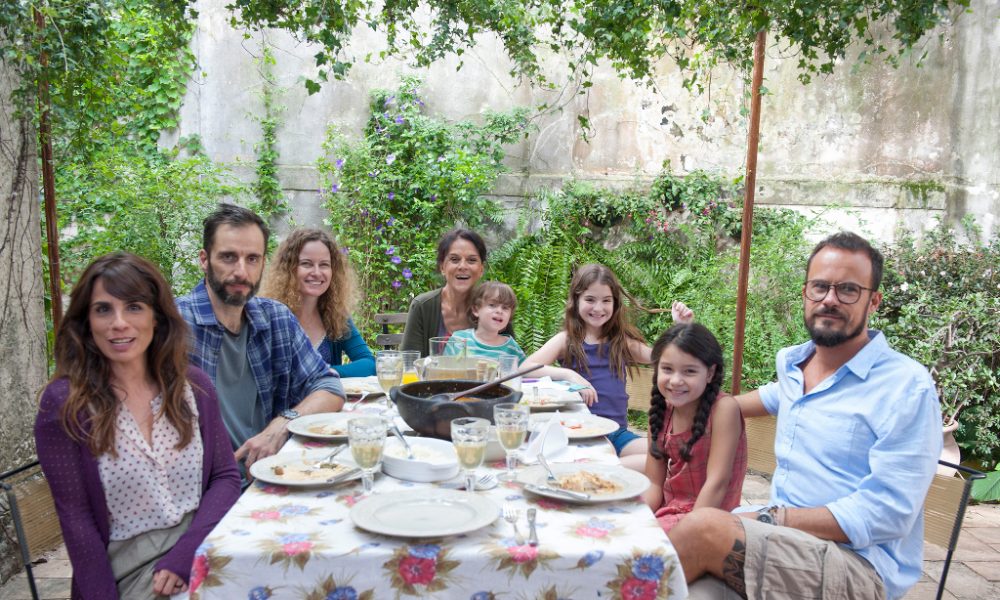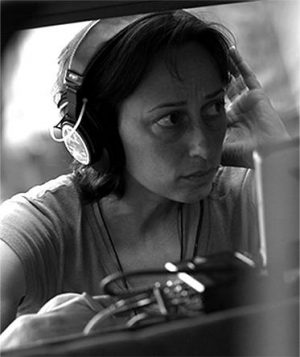Como Nossos Pais (Just Like Our Parents): An interview with director Laís Bodanzky

Como Nossos Pais (Just Like Our Parents) is the latest film from award-winning Brazilian Director Laís Bodanzky. Known for tackling topics such as teenagers, drugs and mental health, this time Bodanzky presents us with a touching family drama. Set in Sao Paulo, the film centres around Rosa, a strong woman who must must negotiate between mundane family responsibilities and embracing her own personal desires. Through this inter-generational family portrait, Bodanzky shines a spotlight on the rigidity of the traditional structure and raises questions about its relevance in the modern day, not only in Brazil, but the wider world. We caught up with the director to discuss how transgression is the key to a happy marriage and the powerful female characters who influenced her script.
I thought it was so refreshing to see a film that was orientated around women. Why did you decide this time to make a film that focused on strong female characters in the family?
It was a theme that touched me, a theme that has affected me personally, as well as my friends’ lives and my neighbours lives. It’s a theme that hasn’t been fully explored in cinema because women have not spoken about it enough.
Do you think the issues raised in your film are specific to Brazil, or universal ideas?
At the beginning I thought it was a theme that was specific to Brazil, but while being here at Berlinale, taking part in the Q&A and the press conference, I realised that it is a universal theme. And it’s a theme that not only runs across various countries, but also across various social classes. The interesting thing about it is that it’s not limited to class and actually it happens even in the most enlightened social classes.
While you were writing and directing were there any historically powerful women who inspired the characters?
My parents are divorced so I grew up with parents who were no longer working together. When I was a young girl there was a television programme that inspired me a lot, it was called Malu Mulher, which means Malu Woman. My mother watched it with me, and it was about the life of a divorced woman with her daughter. For my mother it was the role of the divorced woman who was very important, and for me it was her daughter. I wanted to take this back and imagine how this woman, Malu, would be in today’s world.
When making the film, did you target it more towards a female audience, to encourage them to liberate themselves and take a different approach in their lives, or more towards men to have a greater understanding of what might be going through a woman’s mind?
I didn’t think about one thing nor the other, I didn’t have this specific aim. I wasn’t thinking of a specific audience, I wanted to talk about things that make me think. The curious element of it is that it’s had a tremendous resonance with women who have been watching it here and who stop and think. And it also has a certain resonance with men who stop and think, “Do I really act like that? Am I really like that”. So really, it’s made all kinds of people stop and reflect.
Throughout Just Like Our Parents you make a lot of references to the play A Doll’s House by Henrik Ibsen, which was written in 1878. Why do you think these issues still need to be discussed today, over a century later?
When I started researching for my film, I was not aware that this play had such an impact on the feminist movement. The fact that this play is so relevant despite the fact it took place over a century ago is because these issues haven’t been sorted out yet.
Do you feel films are an important way to change society?
I think films carry the power to change society. The whole idea about this film is to make people reflect, to make people think. My generation, and the generation that came after mine, are still living under a family format that is out of date – it’s ancient and it has to be changed. And I think the idea is to ask ourselves “Is it still working?”, and if it isn’t, “What can we do to change?”.
A key moment in the film is when the eldest mother, Clarice, (played by Clarisse Abujamra) says that when you accept transgression in your life, it makes it better. Is this something you agree with, should people make transgression a part of their life?
Yes! I wish I had heard this earlier in my life.
And so if there’s one message you’d like the audience to take away from the film, would that be it, to let transgression in their life?
I think the word transgression is a very strong word that might have a negative connotation. I think what I want for this film is to make people live up to their desire. To make it possible to take their destiny into their own hands. You should, you can, and that’s the way we should go.
Jayne Rosanna Phillips
For further information about the 67th Berlin Film Festival visit here.
Read more reviews from the festival here.

























Facebook
Twitter
Instagram
YouTube
RSS